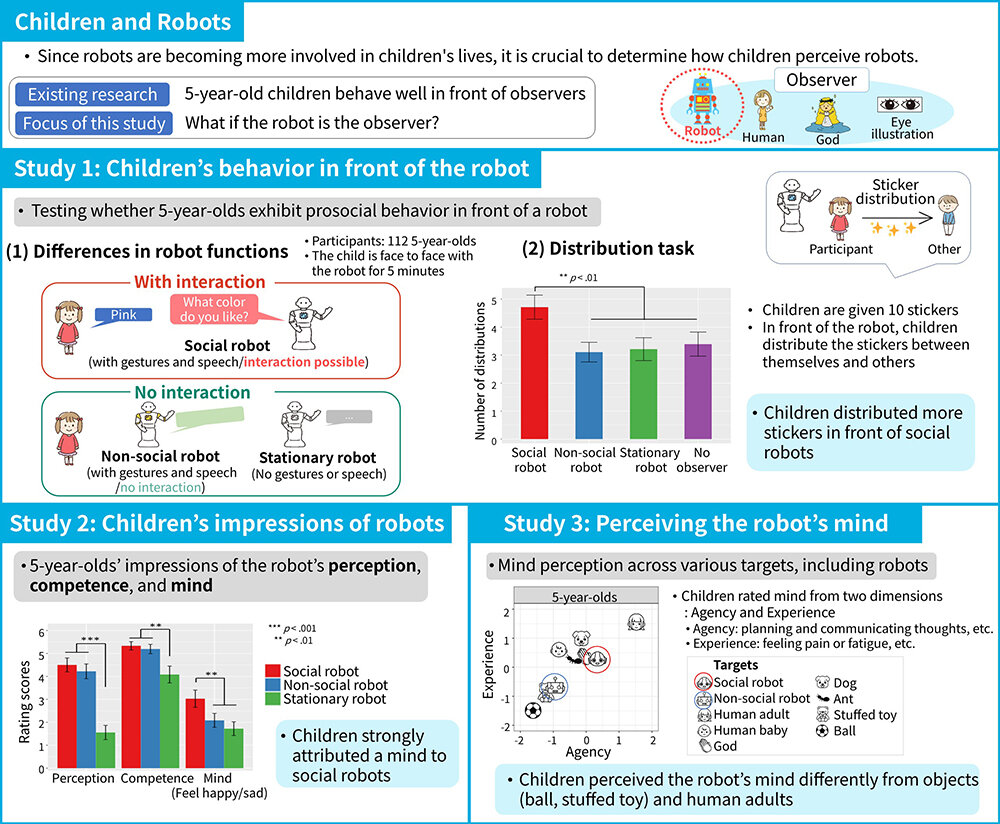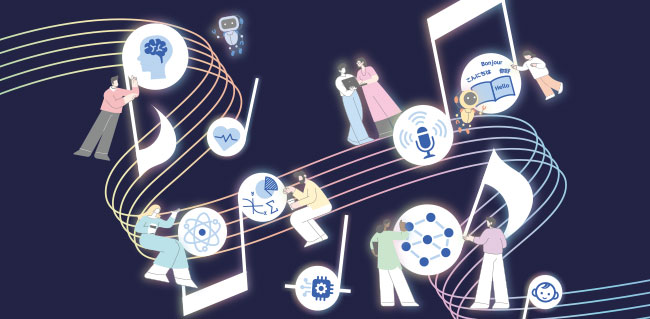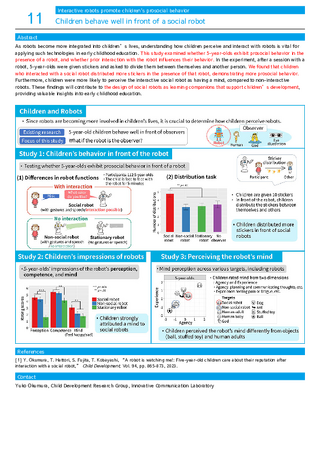| 11 |
Children behave well in front of a social robotInteractive robots promote children's prosocial behavior 
|
|---|
As robots become more integrated into children’s lives, understanding how children perceive and interact with robots is vital for applying such technologies in early childhood education. This study examined whether 5-year-olds exhibit prosocial behavior in the presence of a robot, and whether prior interaction with the robot influences their behavior. In the experiment, after a session with a robot, 5-year-olds were given stickers and asked to divide them between themselves and another person. We found that children who interacted with a social robot distributed more stickers in the presence of that robot, demonstrating more prosocial behavior. Furthermore, children were more likely to perceive the interactive social robot as having a mind, compared to non-interactive robots. These findings will contribute to the design of social robots as learning companions that support children’s development, providing valuable insights into early childhood education.

[1] Y. Okumura, T. Hattori, S. Fujita, T. Kobayashi, “A robot is watching me!: Five-year-old children care about their reputation after interaction with a social robot,” Child Development, Vol. 94, pp. 865-873, 2023.
Yuko Okumura, Child Development Research Group, Innovative Communication Laboratory




